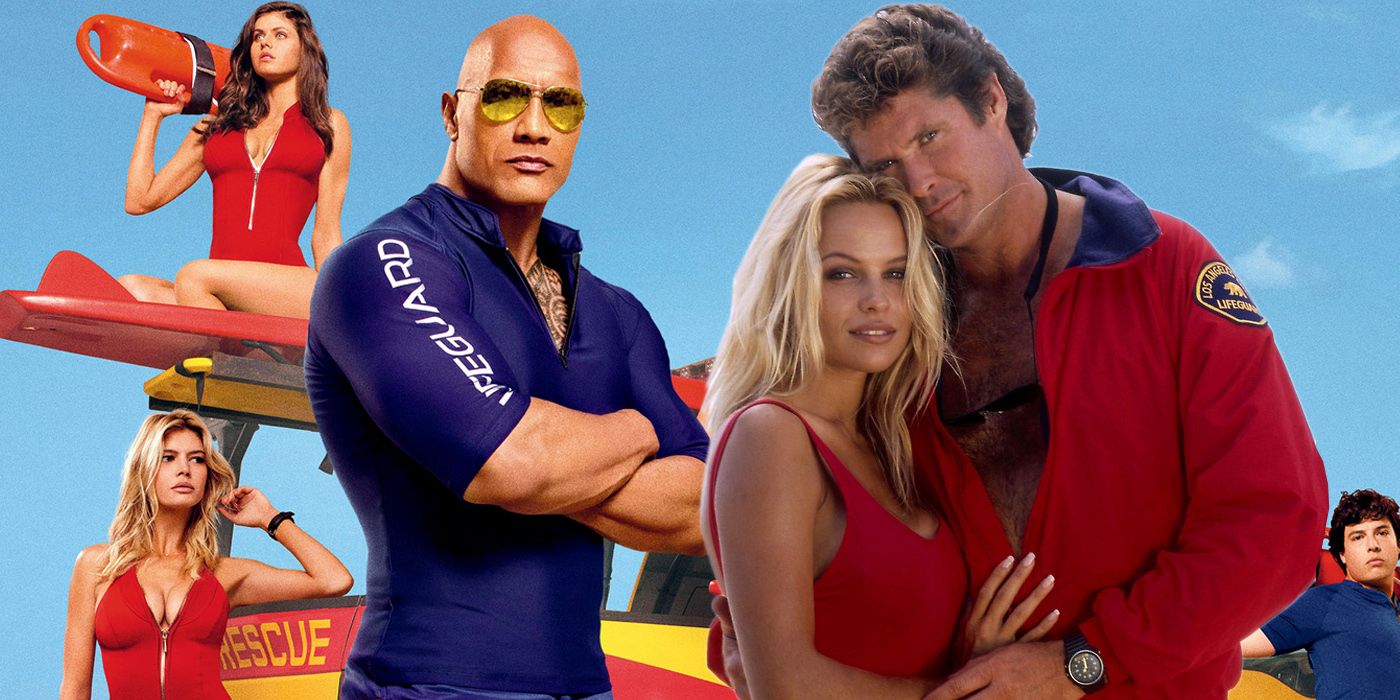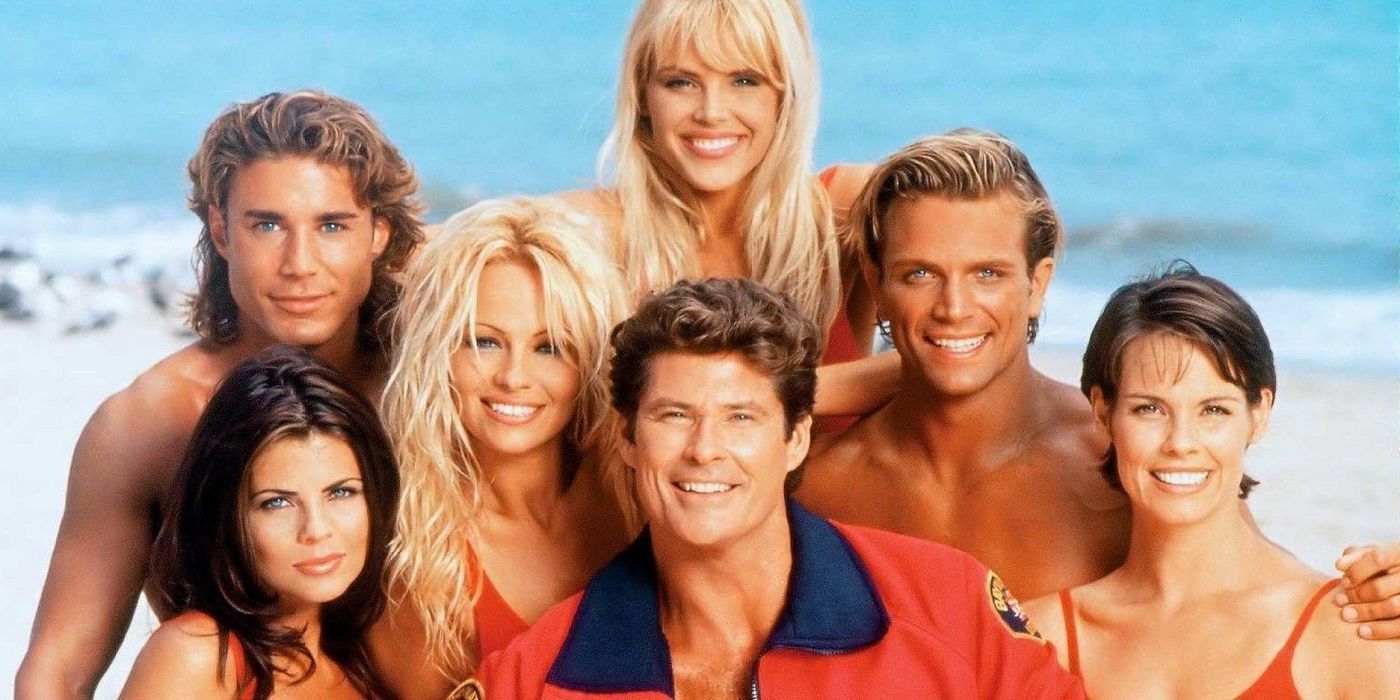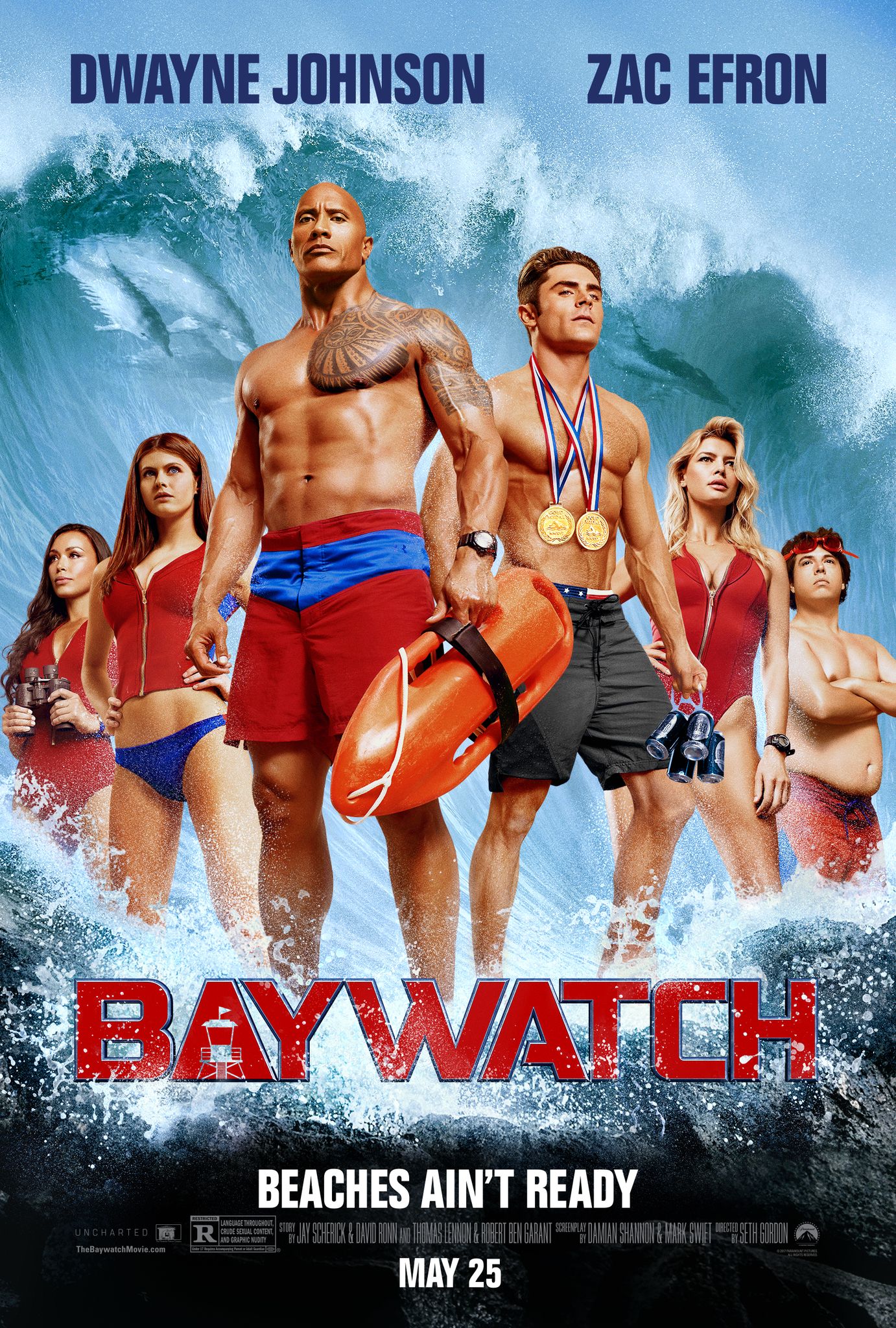Baywatch has finally made the slow-motion run to the big screen, but how connected is The Rock's version it to the original TV show? The David Hasselhoff-led television phenomenon was a dominant force in the 1990s, running throughout the decade and thanks to international syndication posting incomparable viewing numbers. In that time, the phenomenon led to several direct-to-VHS movies, but Mitch Buchannon, CJ Parker and the rest of the LA Lifeguards never succeeded in becoming bonafide movie stars - until now.
That all changes with Baywatch 2017. Starring Dwayne Johnson and Zac Efron, Seth Gordon's brought the series to a new generation with a suitably modern twist. There's a greater raunch than primetime television would allow - Johnson wasn't lying when he said the R-rated film would be "far dirtier" than its inspiration - yet the film still affectionately feels in the same ballpark. But tone is only part of it - in the landscape of legacy-quels, the big question is how everything lines up canonically compared to the show, something that is a bit ambiguous even after seeing the movie.
The trailers, leaning on jokes about how taking down a druglord's plan to tank the bay's property prices was the job for police (or 80s TV icon The Equalizer), hinted that we were in for something similar to the Jump Street movies. Phil Lord and Chris Miller's resurrection of a show only remembered for giving Johnny Depp his first starring role dove into the meta-narrative; Channing Tatum and Jonah Hill's antics not only took place in the same continuity (Depp even had a surprise cameo) but were executed with a sly self-awareness, with everyone involved commenting on the innate cynicism of a reboot. This was amped up in the sequel, which flagrantly repeated itself.
Baywatch doesn't go for anything quite as high-minded or even coherent. On the face of it, we're in pure remake territory. Each of the main actors is playing someone from the original series and fills a similar narrative role: The Rock is The Hoff's Mitch Buchannon; Efron's dejected Olympian is newcomer Matt Brody, first played by David Charvet in Season 3; Kelly Rohrbach is Anderson's CJ Parker; Alexandra Daddario takes Summer Quinn from Nicole Eggert; Ilfenesh Hadera is Stephanie Holden; even supporting players Sgt. Ellerbee and Captain Thorpe are based on original recurring parts. The only original main character is Jon Bass' Ronnie, and that's likely only because the original run lacked a schlubby hero.
They even reference events from the show as part of their previous adventures - when the group talk their previous escapades they mention stopping a diamond smuggler who hid the rocks in a surfboard, directly addressing the main plot of Season 3 episode "Strangers Among Us" - furthering the perception of a redo.
This used to be the default for TV adaptations (see everything from Starsky & Hutch to, yes, The Equalizer) and is hardly a bad move for Baywatch to take. Most of the target demographic for the film won't have been born when the show started, so the franchise's recognizable calling points are less tangible moments than they are the recurring elements - slow-motion, lots of skin, sun-kissed beaches - and that's what Gordon really steers into.
However, within that there are also cameos. We've known for a long time that both Hasselhoff and Anderson would be back in some form, and unlike Ghostbusters 2016, where the original cast returned but in totally new roles, here they're reprising their original characters. And when you have two Mitch Buchannons on screen at the same time, things get interesting.
Next Page: [valnet-url-page page=2 paginated=0 text='Baywatch%27s%20David%20Hasselhoff%20and%20Pamela%20Anderson%20Cameos%20Explained']
Baywatch's David Hasselhoff and Pamela Anderson Cameos Explained
The Hoff is part of three scenes. The first is a simple visual gag when Mitch gives Brody the keys to Lifeguard Hut 1 after being stripped of command; saying they were given to him by his mentor, he flips them over to show an image of Hasselhoff. Later when working in a Switch cell phone store, old Mitch turns up in the flesh to tell new Mitch to get back to it (in the process drawing attention to their strange naming). And, finally, at the end of the credits' gag reel we get the two actors sat together on a beach discussing the possibility of David being more prominent in a sequel.
Anderson's role is shorter but does pay off a running gag. She turns up at the very end of the film, introduced as Casey from the Hawaii division (a reference to the show's location shake-up for Season 10) before showing off her ability to move entirely in slow-motion (the film has previously contextualized the show's defining trait as the ultimate skill of any lifeguard). Unlike Hasselhoff's turn, this seems more like an obligation than anything truly important and the fact they don't recognize her as C.J. in contrast to Rohrbach's character further downplays the joke.
Of course, they're just quick winks for the benefit of long-time Baywatch fans rather than anything of real substance; a chance to catch-up with the icons, right? Ostensibly yes, but that does still leave us with a movie that is both remaking and sequelizing the TV show. From an overly analytical angle, all of this comes together to place us in a weird world where lifeguards feel it's their duty to protect the bay itself, the crew is a rolling series of the same names and archetypes, and most importantly those within Baywatch are oblivious to the ridiculousness while the rest stand by in disbelief.
When you think of the movie in those terms it's kind of glorious, so is something of a shame more wasn't explicitly done with this. Although the original Baywatch's genuine approach was what made it so endearing, in 2017 that straight-faced cheese has been replaced by knowing winks (care of Scream and Jump Street explicitly, but they're really just corners in a bigger cultural shift) and could have really elevated the film. We get certain scenes that allude to the idea, but they never go beyond the basic ho-hum reference joke; taken to completion it could have been a perfect commentary on the ethos of the Baywatch phenomenon and the very internal logic of the show.
Maybe we'll get more of this down the line. The mid-credits beat definitely lays down the gauntlet and should the film prove a hit - as is expected - then there'll be an audience ready for more; this angle was what got people so fired up about the film from the early trailers in the first place.
Although maybe we shouldn't be putting so much thought into this in the first place. It is just Baywatch, after all.



